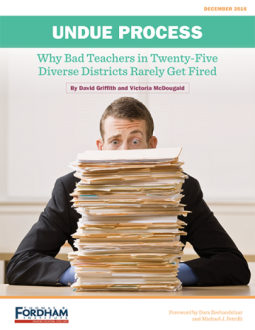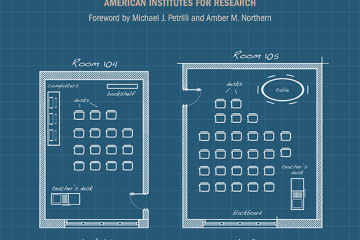Countless studies have demonstrated that teacher quality is the most important school-based determinant of student learning, and that removing ineffective teachers from the classroom could greatly benefit students. Consequently, many states have reformed their teacher evaluation systems in an effort to differentiate between effective and ineffective teachers, with an eye toward parting ways with the latter.
But is dismissing poorly performing teachers truly feasible in America today? After all the political capital (and real capital) spent on reforming teacher evaluation, can districts actually terminate ineffective teachers who have tenure or have achieved veteran status?
To find answers, Fordham analysts David Griffith and Victoria McDougald constructed a ten-point metric based on three questions:
- Does tenure protect veteran teachers from performance-based dismissal?
- How long does it take to dismiss an ineffective veteran teacher?
- How vulnerable is an ineffective veteran teacher’s dismissal to challenge?
They then used this framework to gauge the difficulty of dismissing ineffective veteran teachers in twenty-five diverse districts.
As shown in the table below, not one district in our sample has an easy process in place for dismissing an ineffective veteran teacher. Rather, the data suggest that significant barriers to dismissal remain in place in every district that we examined.
Across the country, most districts and states continue to confer lifetime tenure on teachers, weak teachers still take years to dismiss if they achieve tenured status, and any attempt to dismiss an ineffective veteran teacher remains vulnerable to costly challenges at every stage in the process—from evaluation, to remediation, to the dismissal decision, and beyond. Consequently, in most districts and schools, dismissing an ineffective veteran teacher remains far harder than is healthy for children, schools, taxpayers—and the teaching profession itself.





